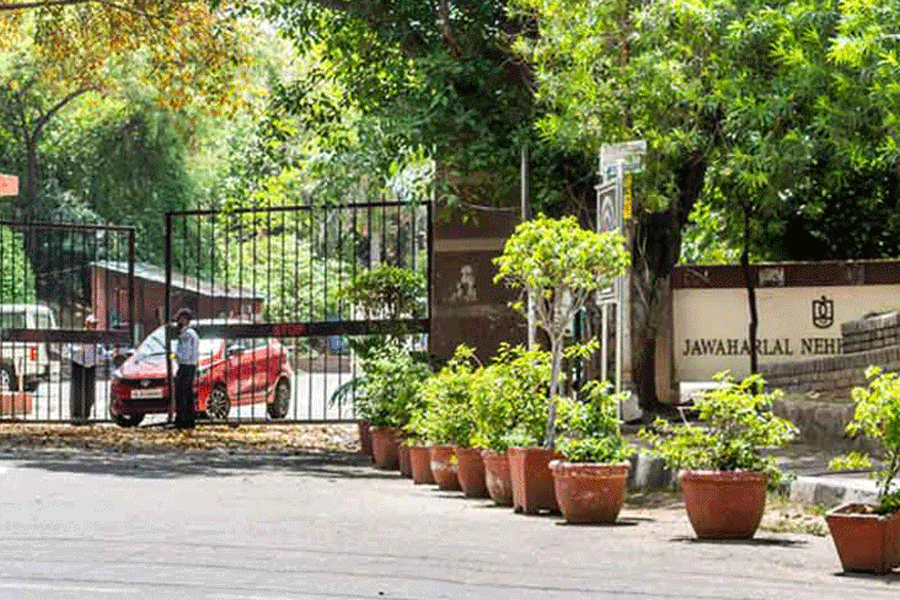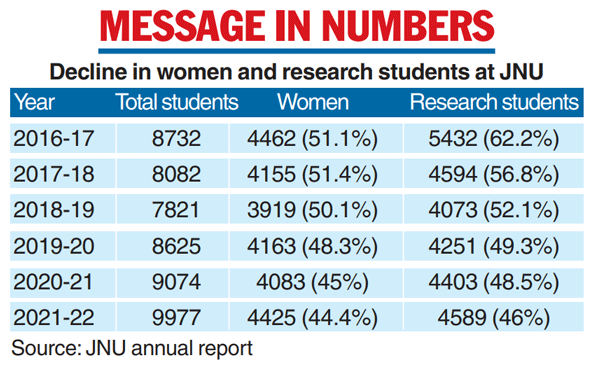Jawaharlal Nehru University witnesses steady decline in female students in recent years


Jawaharlal Nehru University has been witnessing a steady decline in its proportion of female students in recent years, contrary to the national trend.
The proportion of its research students too has fallen from 62.2 per cent in 2016-17 to 46 per cent in 2021-22, suggesting the university is drifting away from its core area of advanced research.
Both trends started soon after the university adopted the University Grants Commission’s latest admission rules for research students in 2017, which led it to scrap its deprivation points policy — the award of extra points to students from backward districts and women students during admission.
While this hit women’s enrolment, the new rules also restricted the number of research students a single faculty member could oversee — thus curtailing research seats.
The deprivation points policy continues in admissions to undergraduate and postgraduate courses, which suggests the fall in women’s enrolment for research courses alone is likely to have been sharper than the overall decline from 51.1 per cent to 44.4 per cent between 2016-17 and 2021-22.
According to the government’s All India Survey on Higher Education, the total enrolment in higher education rose from 3.42 crore in 2014-15 to 4.14 crore in 2020-21, with the percentage of female enrolment rising from 45 to 49.
The JNU Teachers Association on Friday held a news conference where it cited the figures relating to JNU from the annual report of the university.
The teachers alleged the university was in bad shape because of repeated policy changes and a “policy of victimisation”, which they said began after M. Jagadesh Kumar took over as vice-chancellor in 2016 and were being continued by current VC Santishree D. Pandit.
They had a litany of complaints:
Till 2018, JNU used to conduct its own PhD entrance tests in the pen-and-paper format with a mix of objective-type, subjective-type and multiple-choice questions (MCQ). Since 2019, JNU has outsourced the entrance tests to the National Testing Agency (NTA), which now conducts computer-based tests with only MCQs.
Many teachers believe that this handicaps students from impoverished families and backward areas because of their inexperience with computers and inability to afford coaching, often seen as key to success in MCQ tests.
“The discontinuation of the university’s own entrance tests to embrace a technology-driven entrance test by the NTA, and the elimination of the deprivation points system in admissions to research programmes, have affected the composition of students,” teachers’ association member Ayesha Kidwai said.
Moushumi Basu, former secretary of the teachers’ association, said JNU used to conduct its entrance tests for research courses, and completed them before July. After the NTA took over, the academic calendar went haywire, she said. Basu said the number of entrance test centres too had been reduced, and suggested that many women candidates might find the need to travel to faraway centres a deterrent.
